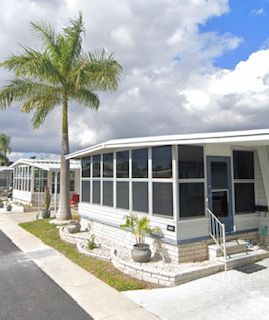Florida Unlawful Detainer Actions
What do you do when your houseguest refuses to leave?

An unlawful detainer action is a county court lawsuit filed pursuant to Florida Statute Chapter 82 to request that another person be ordered to leave your property. In order to prevail in an action for unlawful detainer, you must show you have a legal right to possession of the home, that the person you are trying to remove does not have a legal right to possession of the home and that there is no landlord/tenant relationship between you and the person you are trying to remove.
By way of example, let’s say you own a home. You agreed that your brother could move in, rent free, and stay with you. Now you have revoked your consent, but your brother refuses to leave. If he will not leave of his own initiative, then an unlawful detainer action is the proper remedy.
Before initiating an unlawful detainer action, it is important to double-check that this is the proper remedy based on the facts. If the person possessing your property is subject to a lease, or paid money for the mortgage, utilities or upkeep costs in exchange for use of the property, then the proper remedy is eviction.
Alternatively, if the person possessing your property is not subject to a lease, and did not pay money towards the mortgage, utilities or upkeep costs in exchange for use of the property, but claims to have some right, title or interest to the property, then the proper remedy for that person is ejectment.
In cases where it is unclear which remedy is appropriate, it may be necessary to allege alternate counts in order to cover all of the bases and avoid having to amend the lawsuit later on.
In order to initiate an unlawful detainer action, the person with legal right to possession of the home files a complaint. This is unlike an eviction, which requires the landlord to give the tenant written notice before filing an eviction complaint.
After the complaint is filed, the moving party engages a process server who serves the party in possession with a copy of the complaint. Unlawful detainer actions are “summary procedures” governed by Fla. Sta. §51.011, which means they are advanced on the Court’s docket. Because the action is summary in nature, once he or she has been served, the person in possession has a mere 5 days to file a response to the complaint. If he or she does not file defenses within the 5 days, then the next step is to ask the Clerk of Court for a Clerk’s Default and move forward with scheduling a final hearing.
Many Florida Clerks of Court have boilerplates of unlawful detainer pleadings along with filing instructions on their websites. However, despite being a fairly straight forward action, Court Rules and nuances of litigation make it easy to make a costly misstep. Attorney Jennifer Codding is experienced in unlawful detainer actions. Contact our office today to schedule a consultation.
CONTACT INFORMATION
Phone: 603-882-5129
Fax: 603-882-6873
Email: office@attorneybuchanan.com
New Hampshire Firm
Alexander S. Buchanan, PLLC
30 Temple Street, Suite 201
Nashua, NH 03060
Florida Firm
Alexander S. Buchanan, Professional Limited Liability Company
St. Petersburg, FL
Business Hours:
Mon - Thu: 8:30 am – 5:30 pm
Fri: 8:30 am - 4:00 pm
Sat -Sun: Closed
OUR LOCATION




